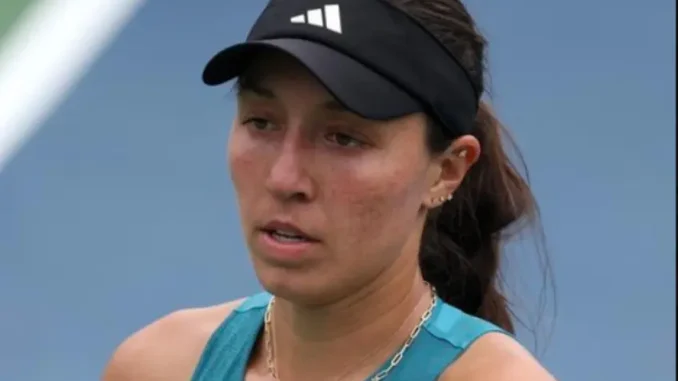
The tennis world has been rocked by a disturbing wave of online vitriol directed at American star Jessica Pegula following her unexpected fourth-round exit at the 2025 French Open. The world No. 3, a US Open finalist in 2024, fell to French wildcard Loïs Boisson in a gripping three-set battle, 3-6, 6-4, 6-4, on June 2 at Roland Garros. In the days that followed, Pegula took to social media to share a chilling glimpse into the toxic abuse she received from disgruntled bettors, including death threats and wishes for her family to suffer from cancer. Her candid response, calling out these “insane and delusional” individuals, has sparked a broader conversation about the pervasive harassment faced by tennis players, particularly from those involved in sports betting.
Pegula’s defeat to Boisson, ranked No. 361, was a stunning upset, marking the Frenchwoman’s improbable run to the quarterfinals—the lowest-ranked woman to achieve such a feat since 2017. Despite Pegula’s strong 2024 season, which included three WTA 1000 titles and a career-best Grand Slam final appearance, the loss triggered a barrage of hateful messages. On Instagram, Pegula posted screenshots of comments that targeted a post mourning the loss of her beloved dog, Tucker. One user wrote, “Karma will come for you, hopefully your first-born child will be a stillbirth,” while another posted a playing card with the words “You Die.” Others called her a “trash can” and accused her of wasting oxygen, with some even suggesting she deliberately threw the match. “These bettors are insane and delusional,” Pegula wrote, emphasizing the relentless nature of the abuse. “I don’t allow DMs and try to remember to shut my comments off during tournament weeks, but they always find a way to my timeline.”
The 31-year-old, daughter of Buffalo Bills and Sabres owners Terry and Kim Pegula, highlighted the systemic nature of this harassment, noting, “Every person on tour deals with it. It’s so bad. Those are just really small snippets. I get told my family should get cancer and die from people on here on a regular basis. Absolutely crazy.” Pegula’s frustration was palpable as she questioned whether other sports face similar levels of vitriol: “Does any other sport deal with this to our level? I’d love to know because it seems to be predominantly tennis? It’s so disturbing.” Her comments echo those of other players, including Iga Swiatek, Caroline Garcia, and Marketa Vondrousova, who have also spoken out about receiving threats from bettors after losses.
Pegula’s experience is not isolated. She revealed that the abuse has become so normalized that even serious threats flagged by the NHL to her team elicited a casual response: “My response was ‘oh that’s it? I get those all the time.’ That is so messed up that that is my response. Normalizing death threats!” She also dismissed suggestions to “stay off social media,” explaining, “It’s unavoidable because our careers and sponsors are based off of posting on social media.” This reliance on online platforms for professional obligations makes players vulnerable, as trolls create new accounts to bypass blocks, a tactic Pegula has encountered repeatedly. “If you block them, they make new accounts,” she noted in a previous statement during the 2024 US Open, underscoring the persistent nature of the harassment.
The tennis community rallied behind Pegula, with fans expressing outrage and solidarity on social media. One supporter wrote, “That’s so awful. Feel bad for her, especially the horrible comments about her dog. Some people are just pathetic,” while another demanded, “We need legislation… every gambling ad should have a disclaimer that abuse will be prosecuted.” Pegula’s stand has reignited calls for stronger protections, with some suggesting the WTA ban betting on matches or leverage AI to filter toxic comments, as Swiatek proposed last year. “Players want to win, but when they don’t, they don’t deserve to get this kind of hate. Disgusting,” one fan posted, capturing the sentiment of many.
Despite the abuse, Pegula remains resilient, stating, “I’m glad this stuff has never really gotten to me (can’t reason with crazy), but it doesn’t mean it doesn’t get to other players or make it ok.” Her courage in exposing these messages, especially after a personally challenging year marked by her mother’s health scare and the loss of her pet, highlights her strength. As she prepares for the grass season, Pegula’s actions have sparked a vital conversation about the toxic intersection of sports betting and athlete mental health, urging governing bodies and tech platforms to address this growing crisis.
Leave a Reply